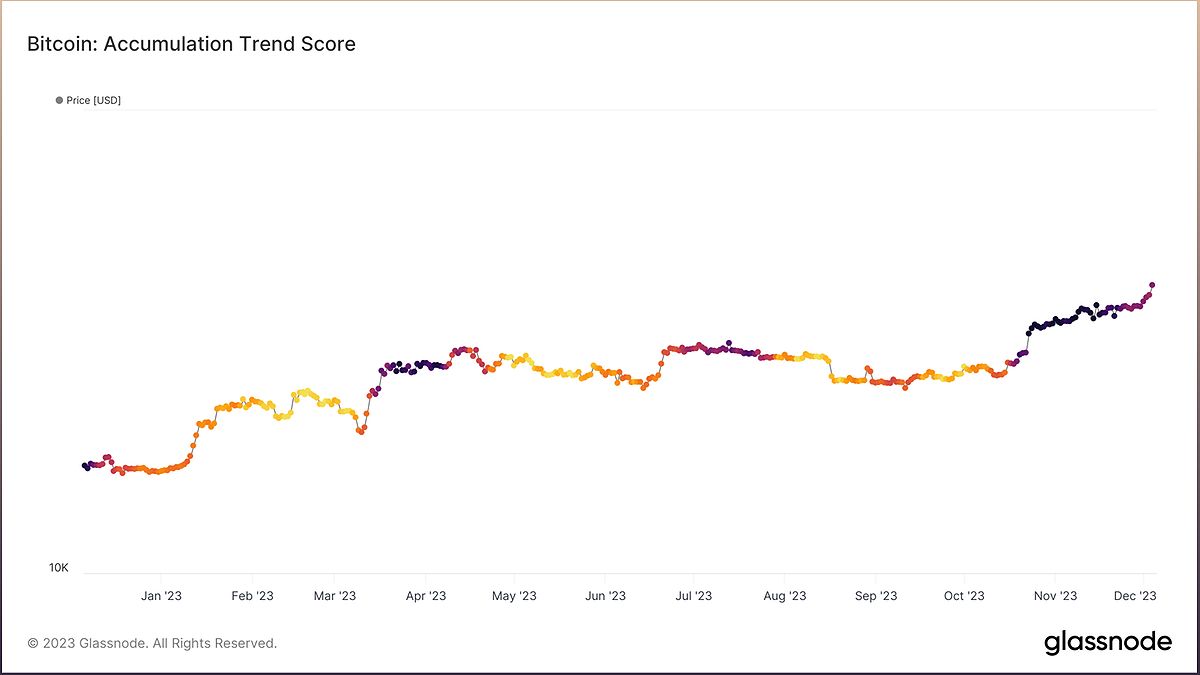In the past four days, Bitcoin short-term holders have engaged in a significant profit-taking event, selling approximately $4.5 billion worth of BTC. As an analyst and cryptocurrency advocate, I find this development intriguing and believe it's crucial to understand the motivations behind these actions. In this article, we will delve into the reasons behind this massive sell-off and its potential impact on the market. Let's explore the recent behavior of short-term holders and the implications for Bitcoin's price and demand.
Bitcoin Short-Term Holders and Profit-Taking
Bitcoin short-term holders, referring to investors who acquired their Bitcoin within the last 155 days, have recently participated in a massive profit-taking event. Unlike long-term holders who rarely sell, short-term holders are known for their reaction to market FUD or FOMO.
With Bitcoin's recent bullish momentum and breach of the $41,000 level, it is expected that short-term holders would take profits. The total transfer volume of these investors to centralized exchanges can indicate whether they are selling or not.
A chart provided in the article shows the trend in this Bitcoin indicator over the past few years. The chart reveals that the transfer volume from short-term holders to exchanges has spiked alongside the latest rally, suggesting a rush of profit-taking.
Analyst James V. Straten estimates that short-term holders have made deposits of nearly $4.5 billion in the last four days, with $1.5 billion deposited yesterday alone. This profit-taking event is the largest since November 2021.
Despite the selloff, Bitcoin has managed to maintain its price and push towards higher levels, indicating sufficient demand to absorb the sellers. Currently, Bitcoin is floating around $41,900 and is about to retest the $42,000 level.
Implications for the Market
The significant profit-taking by short-term holders raises questions about the overall sentiment and market dynamics. While it may indicate a temporary sell-off, it also suggests that short-term holders are capitalizing on the recent price surge.
However, the ability of Bitcoin to maintain its price and continue its upward momentum despite the sell-off indicates strong demand from other market participants. This resilience showcases the market's maturity and the growing interest in Bitcoin as a long-term investment.
Furthermore, the profit-taking event provides an opportunity for new investors to enter the market at potentially lower prices. It also allows long-term holders to accumulate more Bitcoin, reinforcing their belief in the future value of the cryptocurrency.
Historical Trends and Patterns
By examining the historical transfer volume trends of short-term holders, we can gain insights into their behavior during different market conditions. The chart provided in the article showcases the correlation between transfer volume and Bitcoin's price movements.
During bullish periods, such as the recent rally, we observe a surge in transfer volume as short-term holders take profits. Conversely, during bearish periods, the transfer volume tends to decrease as short-term holders hold onto their Bitcoin in anticipation of a price recovery.
Understanding these historical trends can help investors gauge market sentiment and make informed decisions regarding their Bitcoin holdings.
Long-Term Holders vs. Short-Term Holders
Long-term holders and short-term holders have distinct behaviors and motivations when it comes to their Bitcoin holdings. Long-term holders are typically more resilient to market fluctuations and tend to hold onto their Bitcoin for extended periods.
On the other hand, short-term holders are more reactive to market FUD (Fear, Uncertainty, and Doubt) or FOMO (Fear Of Missing Out) and are more likely to take profits during price rallies. This behavior can contribute to short-term price volatility.
Understanding the differences between these two types of holders can provide valuable insights into market dynamics and help investors navigate the Bitcoin market more effectively.




